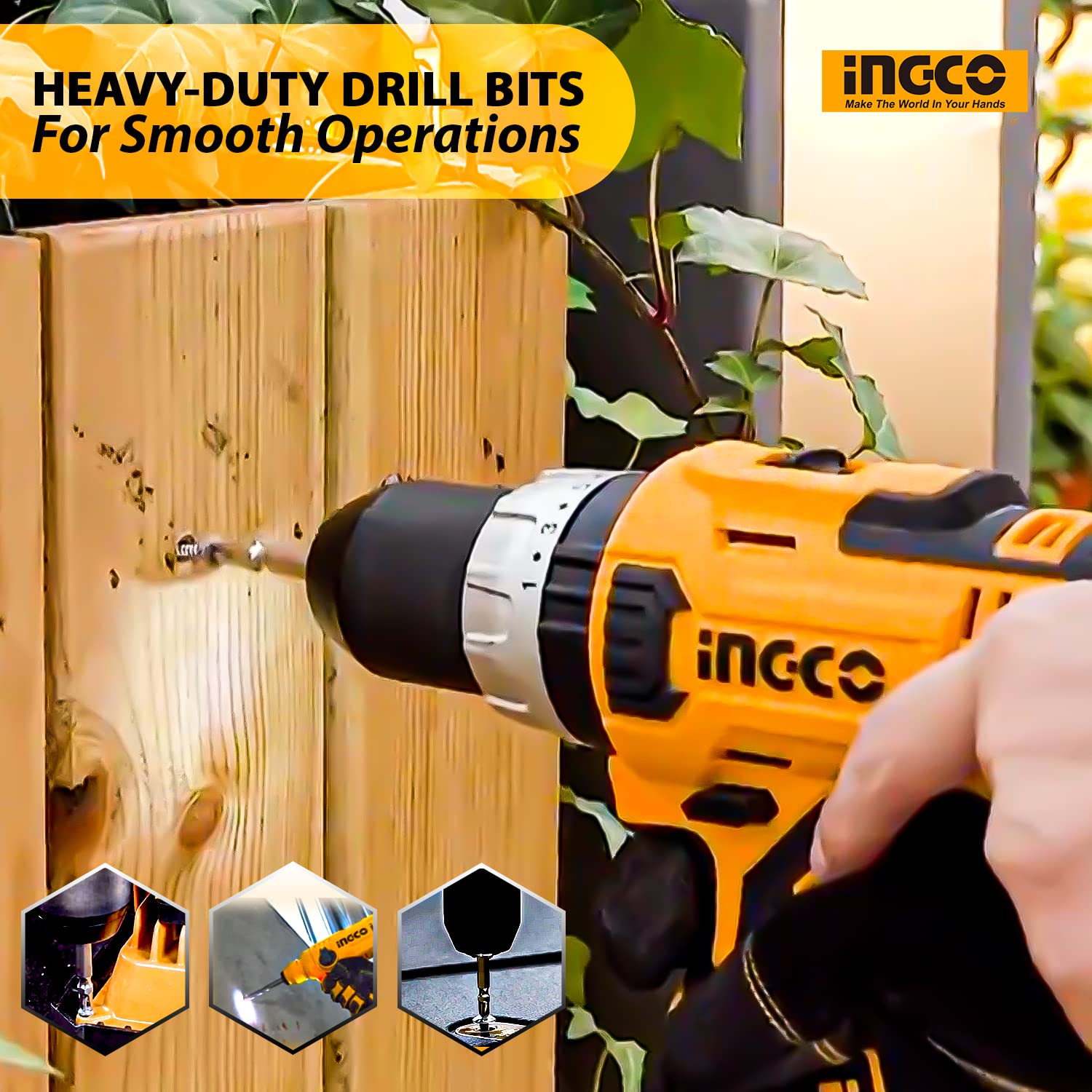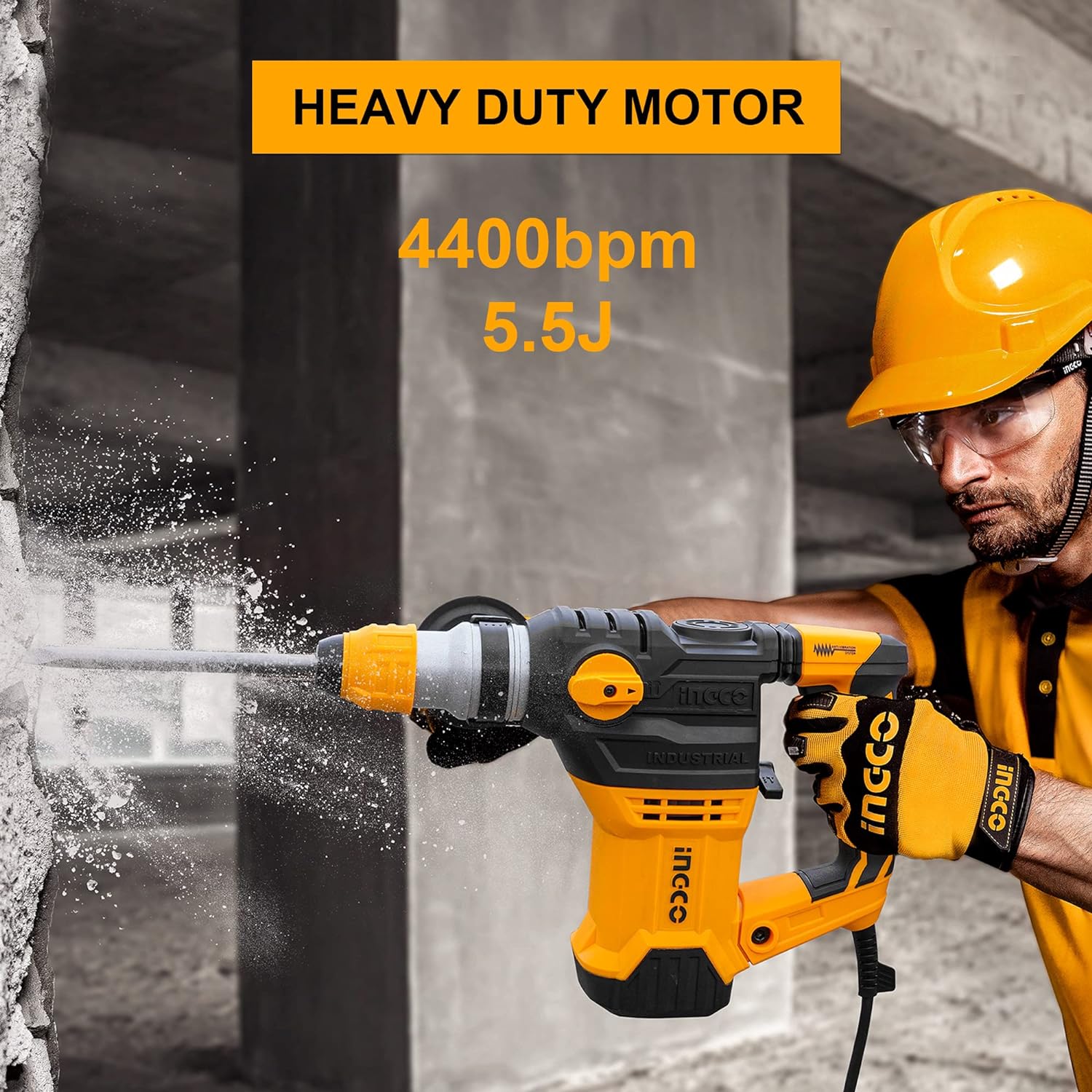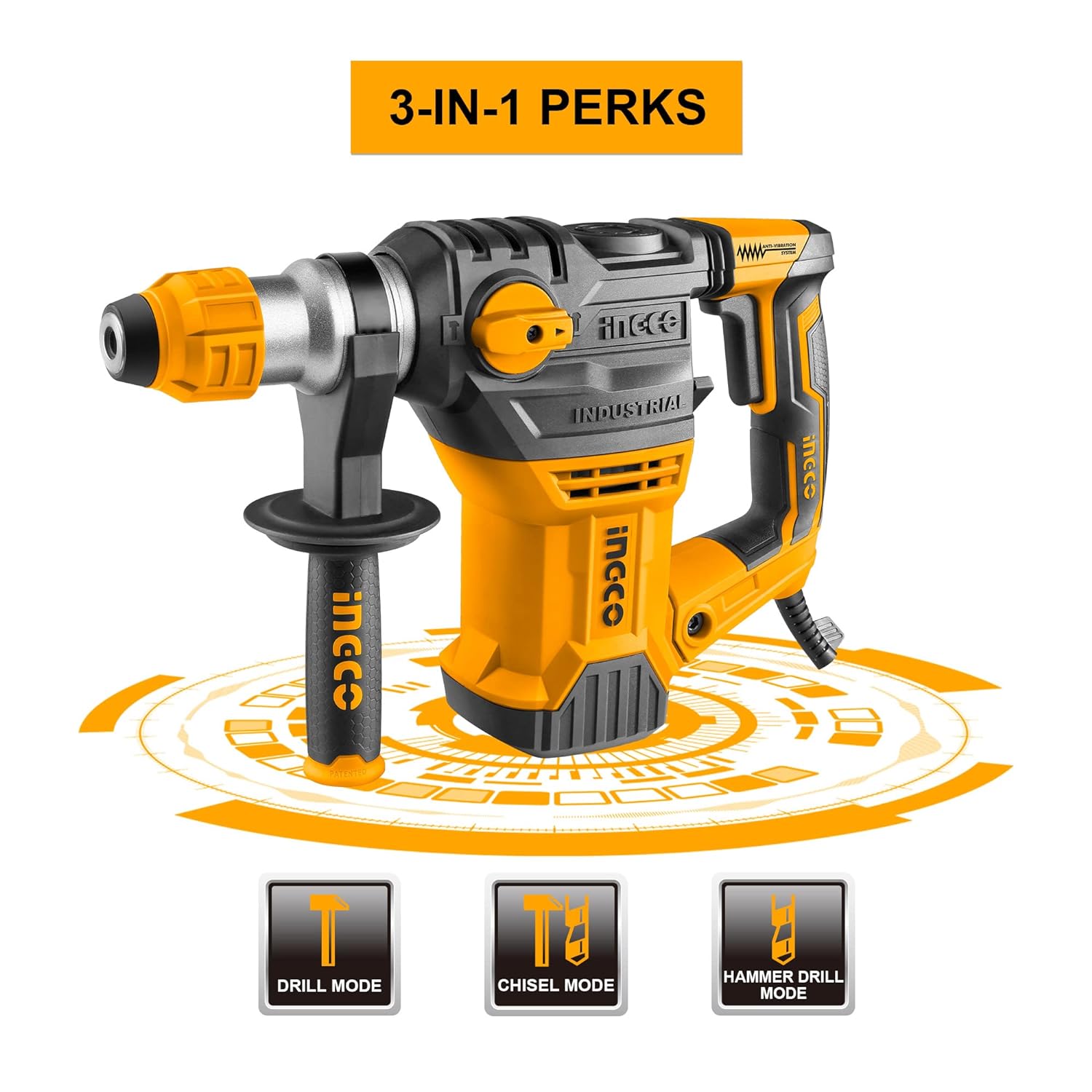A hammer drill is an essential tool for drilling into tough materials like concrete, brick, and masonry. Whether you're a professional contractor or a DIY enthusiast, choosing between a corded hammer drill and a cordless hammer drill can be challenging. Each type has its advantages and limitations, and selecting the right one depends on your work requirements, budget, and level of convenience.
In this guide, we’ll compare corded and cordless hammer drills based on power, performance, portability, durability, and cost to help you make an informed decision.
1. Understanding Corded and Cordless Hammer Drills
Before comparing their performance, let's first understand the basic differences between corded and cordless hammer drills.
-
Corded Hammer Drills operate on direct power from an electrical outlet. They provide consistent and high power output but require a continuous power connection.
-
Cordless Hammer Drills run on rechargeable lithium-ion batteries, offering portability and ease of use but with a limited runtime based on battery life.
Each type has its own set of advantages, depending on the type of work you do.
2. Power and Performance
Power and performance are critical factors when choosing between a corded or cordless hammer drill.
-
Corded Hammer Drills:
-
Offer higher power output due to their direct electrical connection.
-
Provide consistent speed and torque, making them ideal for heavy-duty drilling.
- Best suited for long working hours since there is no battery to drain.
-
Offer higher power output due to their direct electrical connection.
-
Cordless Hammer Drills:
-
Depend on battery power, which can limit drilling speed and force.
-
High-voltage models (18V - 24V) can match some corded drill performance.
-
Power can diminish over time as the battery drains, affecting drilling efficiency.
-
Depend on battery power, which can limit drilling speed and force.
If maximum power and uninterrupted performance are your priorities, a corded hammer drill is the better option. However, if you need mobility and don’t require extreme power, a cordless hammer drill can be a good choice.
3. Portability and Convenience
Portability is one of the biggest advantages of cordless hammer drills.
-
Cordless Hammer Drills:
-
Provide freedom of movement without worrying about power sockets or extension cords.
-
Ideal for outdoor projects or worksites where electricity access is limited.
-
Can be used in tight spaces or overhead applications where a cord might be restrictive.
-
Provide freedom of movement without worrying about power sockets or extension cords.
-
Corded Hammer Drills:
-
Require an electric outlet or extension cord, limiting movement.
-
Heavier models can be cumbersome to carry around, especially for roofing or large construction projects.
-
Require an electric outlet or extension cord, limiting movement.
If you often work in remote locations or need maximum mobility, a cordless hammer drill is a better choice. However, if your work is mostly stationary and requires continuous drilling, a corded model would be more practical.
4. Battery Life vs. Unlimited Power Supply
One of the biggest limitations of a cordless hammer drill is battery life.
-
Cordless Hammer Drills:
-
Battery life depends on voltage (12V, 18V, 24V, etc.) and Ah (ampere-hours).
-
A fully charged battery can last between 30 minutes to a few hours, depending on usage.
-
Some high-end models offer fast-charging batteries, but downtime can still occur.
-
Battery life depends on voltage (12V, 18V, 24V, etc.) and Ah (ampere-hours).
-
Corded Hammer Drills:
-
Provide unlimited operation time without the need for charging.
-
Ideal for long-duration drilling tasks.
-
Provide unlimited operation time without the need for charging.
If you need a hammer drill for long hours without interruptions, a corded hammer drill is the best option. If you're working on shorter projects and prefer portability, a cordless hammer drill is more suitable.
5. Durability and Maintenance
Both types of hammer drills are built to last, but maintenance and durability differ.
-
Corded Hammer Drills:
-
Tend to be more durable since they have fewer electronic components that can fail.
-
No battery degradation over time.
-
Require regular power cord inspection to prevent electrical hazards.
-
Tend to be more durable since they have fewer electronic components that can fail.
-
Cordless Hammer Drills:
-
Battery degradation can occur over time, leading to reduced performance.
-
Lithium-ion batteries have a lifespan of 2 to 5 years, depending on usage.
-
Require battery replacements, which add to long-term costs.
-
Battery degradation can occur over time, leading to reduced performance.
If you’re looking for a low-maintenance, long-lasting drill, a corded hammer drill is the best option. If you don’t mind replacing batteries over time, a cordless drill provides added convenience.
6. Price Comparison: Which Offers Better Value?
Price is an essential factor when choosing between corded and cordless hammer drills.
-
Corded Hammer Drills:
- Generally more affordable than cordless models.
-
No need to purchase extra batteries or chargers, reducing long-term costs.
-
Cordless Hammer Drills:
-
-
Usually more expensive due to battery technology.
-
Additional cost for extra batteries and fast chargers.
-
If you're on a budget and need powerful performance, a corded hammer drill is the best value. If you’re willing to invest in convenience and portability, a cordless drill is worth the extra cost.
7. When to Choose a Corded Hammer Drill
A corded hammer drill is the best choice if:
- You need consistent power for heavy-duty drilling.
- Your projects require long hours of continuous work.
- You don’t want to worry about battery life and recharging.
-
You need an affordable, durable option with low maintenance.
Best Uses for Corded Hammer Drills:
- Masonry and concrete drilling
- Heavy-duty construction projects
- Workshops and industrial settings
-
Large-scale renovations
8. When to Choose a Cordless Hammer Drill
A cordless hammer drill is the best choice if:
-
You need portability and freedom of movement.
-
Your work involves frequent site changes or outdoor projects.
-
You prefer a lightweight, easy-to-carry tool.
-
You’re willing to invest in extra batteries for longer usage.
Best Uses for Cordless Hammer Drills:
-
Home repairs and light-duty drilling
-
Roofing and overhead work
-
Outdoor projects without power access
-
Tight spaces and hard-to-reach areas
Conclusion: Which One Should You Choose?
The choice between a corded vs. cordless hammer drill depends on your specific needs and budget.
-
If you need power, durability, and uninterrupted performance, go for a corded hammer drill.
-
If you need portability and convenience for on-the-go tasks, a cordless hammer drill is the better option.
Looking for the Best Hammer Drill Machine?
Explore our collection of corded and cordless hammer drills, along with bench drilling machines, angle grinder attachments, and other power tools, to find the perfect fit for your needs.
Have questions? Drop a comment below!





Leave a comment
This site is protected by hCaptcha and the hCaptcha Privacy Policy and Terms of Service apply.